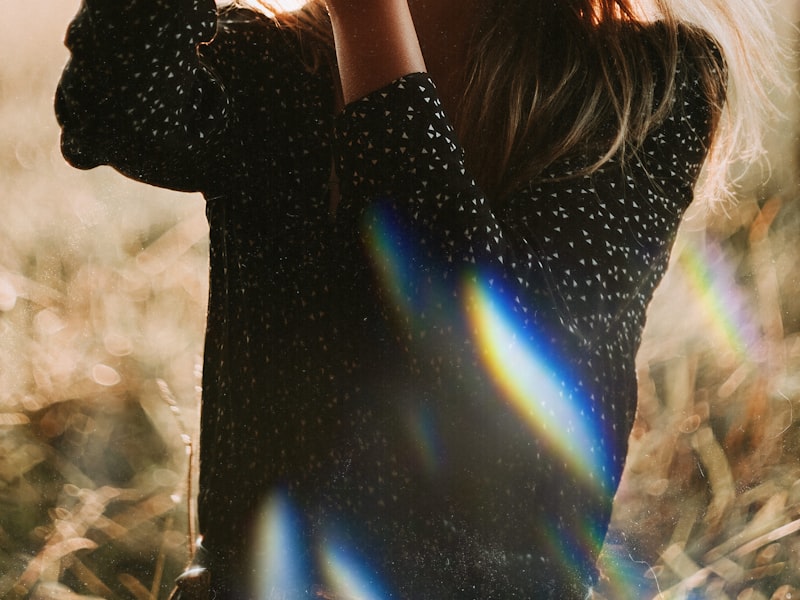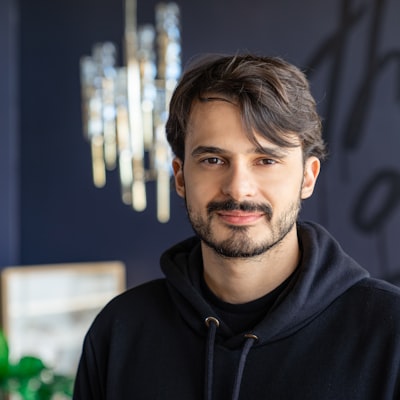Unveiling the Artistry of AI: The Wonders of AI-Generated Photos

In the realm of digital innovation, the boundaries of creativity continue to be pushed by artificial intelligence (AI). One fascinating application that has emerged is the production of AI-generated photos. These remarkable images are not captured by human hands but are instead meticulously crafted by algorithms that can mimic the artistry and aesthetic senses of human photographers. With AI photo generation, we witness the amalgamation of cutting-edge technology and artistic expression, culminating in an awe-inspiring showcase of computer-generated visual artistry.
The evolution of AI photo generation has opened up boundless possibilities in the world of digital imaging. AI-powered algorithms have the ability to analyze vast libraries of existing photographs, learn the intricate nuances of composition, lighting, and color, and then apply this knowledge to create never-before-seen images. By harnessing the power of deep learning networks, AI photo generation has the potential to revolutionize various industries, from design and advertising to entertainment and beyond.
However, the exponentially growing capabilities of AI in generating photos also bring ethical concerns. The rise of AI-generated pornographic imagery has raised questions about consent, privacy, and the potential misuse of this powerful technology. As AI photos become indistinguishable from genuine photographs, it becomes increasingly crucial to establish safeguards and regulations to prevent malicious misuse and protect individuals from potential harm.
Despite these concerns, there is no denying the immense creative potential that AI photo generation holds. As we continue to unravel the mysteries of this technology, we can uncover new ways to push the boundaries of traditional artistic expression, inspire innovative visual storytelling, and broaden our understanding of what is possible in the realm of digital art. The wonders of AI-generated photos stand as a testament to the vast possibilities that lie at the intersection of artificial intelligence and human creativity.
The Rise of AI-Generated Photos
The world of photography has witnessed a remarkable transformation with the advent of AI. AI-generated photos, created by computer algorithms, have emerged as a captivating and innovative aspect of the art. These images, generated using advanced machine learning techniques, are pushing the boundaries of creativity and challenging our perception of reality.
AI photo generation has opened up new possibilities for photographers, artists, and designers. Gone are the days when capturing a moment was limited to the confines of a camera. With AI, the creative process has become an intricate dance between human imagination and machine intelligence.
One of the most intriguing aspects of AI photo generation is its ability to produce lifelike and realistic images. The algorithms analyze vast amounts of visual data and learn to mimic the styles and techniques employed by professional photographers. This allows for the creation of stunning visuals that blur the line between what is real and what is generated.
However, amidst the wonders of AI-generated photos, certain concerns have been raised regarding AI porn. The incredibly realistic nature of these images has led to ethical debates surrounding consent, privacy, and the rights of individuals depicted in AI-generated adult content. It is important for the creators and users of such technology to be mindful of these ethical considerations and ensure that AI is used responsibly.
In the next sections of this article, we will delve deeper into the astounding advancements in AI photo generation and explore how this technology is revolutionizing the world of photography and artistic expression. Buckle up for a journey that will both inspire and challenge your perception of what is possible in the realm of visual art.
Exploring the Boundless Creativity of AI
Artificial intelligence has revolutionized various industries, and the realm of photography is no exception. With the advent of AI-generated photos, a world of infinite artistic possibilities has emerged. These breathtaking images, crafted by sophisticated algorithms, showcase the boundless creativity of AI.
AI photos possess a mesmerizing allure, capturing moments and subjects with exceptional precision. The intricate details and vibrant colors of these images are the result of AI photo generation processes that have been meticulously designed and refined. By analyzing vast amounts of data, AI algorithms can distill patterns and features, enabling them to effortlessly produce stunning visuals.
The magic of AI photo generation lies in its ability to push the boundaries of imagination. These AI-generated photos can transport us to landscapes that exist solely within the realm of the virtual, where reality seamlessly blends with fantasy. From picturesque landscapes to futuristic cityscapes, AI's artistic prowess knows no limits.
Moreover, AI-generated photos have provided new opportunities for creative expression. Artists and photographers can experiment with AI tools to generate unique and unconventional visuals, expanding the horizons of their creativity. By harnessing https://ai-porn.space/ of AI photo generation, they can explore uncharted territories and bring their artistic visions to life like never before.
In conclusion, the wonders of AI-generated photos have transcended the realm of mere technology. They have become a testament to the boundless creativity that AI possesses. With their ability to capture moments, evoke emotions, and challenge artistic boundaries, these AI photos are a testament to the limitless possibilities that emerge when technology and art converge on a canvas of endless imagination.
Challenges and Controversies Surrounding AI-Generated Photos
AI-generated photos have undoubtedly fascinated the world with their astonishingly realistic visuals, but alongside their wonders come a host of challenges and controversies. As with any disruptive technology, AI photo generation has raised concerns and sparked debates regarding its potential misuse and ethical implications.
One of the key challenges surrounding AI-generated photos is the risk of misuse, particularly in the context of AI porn. The ability of AI algorithms to seamlessly blend and modify images has given rise to the creation of non-consensual explicit content featuring individuals who may not have ever been involved in such activities. This deepfake phenomenon has serious implications for privacy and consent, as it allows malicious actors to manipulate and distribute explicit content without the knowledge or consent of those involved.
Furthermore, the widespread availability of AI photo generation tools also raises questions about copyright infringement. With AI algorithms being capable of replicating existing images or creating new ones that closely resemble original works, the line between what is considered authentic and what is artificially generated becomes blurred. This poses challenges for artists and photographers who rely on their creations for livelihood, as it becomes increasingly difficult to protect their intellectual property from being used or replicated without permission.
The controversial nature of AI-generated photos extends into the realm of societal perceptions and implications as well. The images produced by AI algorithms often adhere to prevailing societal biases and cultural stereotypes, which can perpetuate harmful narratives and reinforce existing prejudices. As AI algorithms are trained on existing datasets, they may inadvertently learn and reproduce the biases embedded within those datasets, perpetuating a cycle of discrimination and inequality.
In conclusion, while AI-generated photos exhibit remarkable artistry and technical achievements, they also bring about challenges and controversies. The potential misuse in the form of AI porn, concerns surrounding copyright infringement, and the perpetuation of societal biases all contribute to the complexities surrounding AI photo generation. As this technology continues to evolve, it is crucial that we address these challenges and engage in thoughtful discussions to ensure responsible and ethical use in the future.
